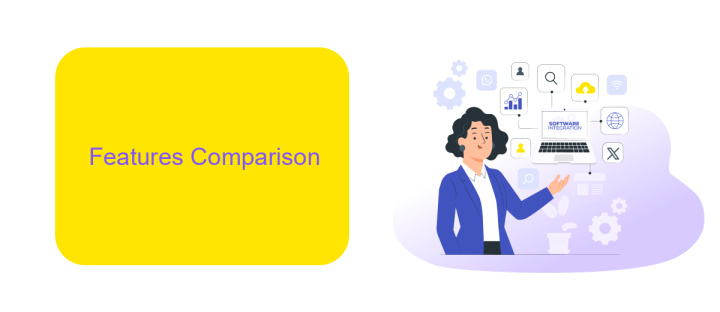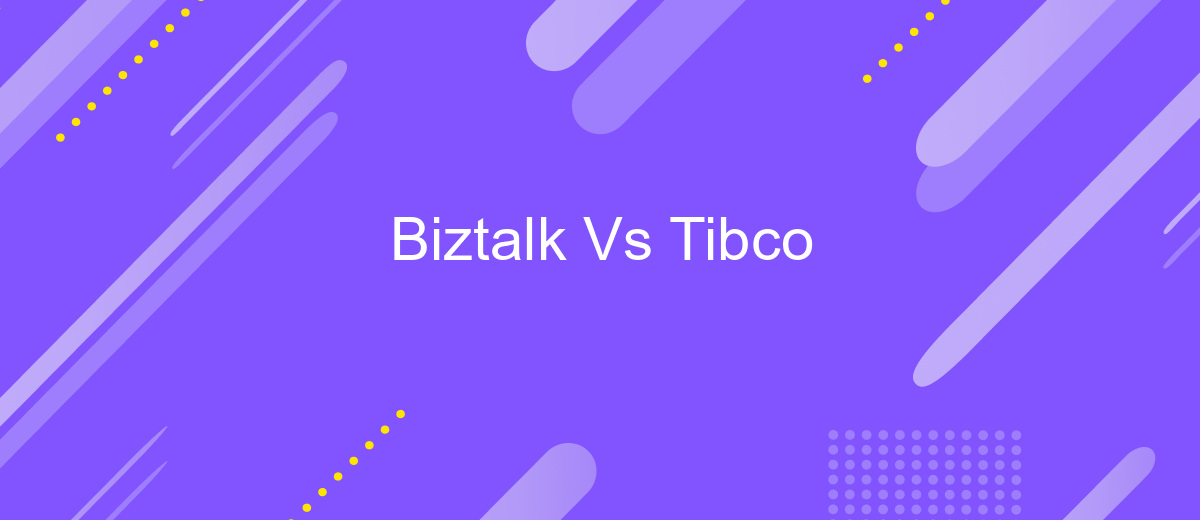Biztalk Vs Tibco
When it comes to enterprise application integration, BizTalk and TIBCO are two prominent names that often come up in discussions. Both platforms offer robust solutions for connecting disparate systems and streamlining business processes. However, choosing between them can be challenging due to their unique features and capabilities. This article delves into a comparative analysis of BizTalk and TIBCO to help you make an informed decision.
Introduction
In the world of enterprise integration, choosing the right platform is crucial for seamless operations and efficient data management. BizTalk and TIBCO are two prominent players in this domain, each offering unique features and capabilities that cater to different business needs. Understanding their strengths and weaknesses can help organizations make informed decisions about which platform suits their requirements best.
- BizTalk: Known for its robust integration with Microsoft products and ease of use.
- TIBCO: Renowned for its high performance and scalability in handling complex integrations.
- ApiX-Drive: A versatile tool that simplifies integration processes, making it easier to connect various applications and services.
Both BizTalk and TIBCO have their own sets of advantages and limitations. While BizTalk excels in environments heavily reliant on Microsoft technologies, TIBCO stands out in scenarios demanding high throughput and extensive customization. Additionally, tools like ApiX-Drive can further streamline integration efforts, providing a user-friendly interface for connecting diverse systems. This comparison aims to shed light on the core aspects of BizTalk and TIBCO, helping businesses navigate their integration challenges effectively.
Features Comparison

BizTalk and TIBCO are both powerful integration platforms, yet they offer distinct features tailored to different needs. BizTalk, developed by Microsoft, excels in integrating a wide range of Microsoft products and services, making it a top choice for enterprises heavily invested in the Microsoft ecosystem. It provides robust support for EDI, BAM, and ESB, along with seamless integration with Azure. On the other hand, TIBCO specializes in real-time data processing and event-driven architecture, making it ideal for businesses requiring high-speed data analytics and complex event processing. TIBCO's strengths lie in its ability to handle large volumes of data and its comprehensive suite of tools for business process management and cloud integration.
Both platforms offer extensive capabilities for API management and integration, but when it comes to ease of use and flexibility, services like ApiX-Drive can be invaluable. ApiX-Drive simplifies the process of connecting various applications and automating workflows without requiring extensive coding knowledge. This can be particularly beneficial for businesses looking to streamline their integration processes without the steep learning curve associated with more complex platforms. Therefore, while BizTalk and TIBCO provide robust solutions for enterprise-level integration, leveraging tools like ApiX-Drive can enhance efficiency and reduce the time required to set up and manage integrations.
Performance Analysis

When it comes to performance, both BizTalk and Tibco offer robust solutions, but they cater to different needs and scenarios. BizTalk is known for its seamless integration with Microsoft products and services, making it an excellent choice for organizations heavily invested in the Microsoft ecosystem. On the other hand, Tibco shines in environments requiring high-throughput and low-latency data processing, often preferred in financial services and telecommunications.
- BizTalk: Optimized for Microsoft environments, with strong support for .NET applications and SQL Server.
- Tibco: Excels in high-performance, real-time data integration, often used in complex, large-scale enterprise systems.
- ApiX-Drive: A versatile tool for setting up integrations, which can complement both BizTalk and Tibco by simplifying the configuration of various APIs and services.
In conclusion, the choice between BizTalk and Tibco largely depends on your specific performance needs and existing technological investments. While BizTalk integrates seamlessly with Microsoft products, Tibco offers superior performance for real-time data processing. Tools like ApiX-Drive can further enhance your integration capabilities, making the setup and management of API connections more efficient.
Case Studies and Implementations

In the realm of enterprise integration, both BizTalk and Tibco have demonstrated their prowess through various implementations across industries. One notable case involves a large financial institution that leveraged BizTalk to streamline their internal processes and enhance data security. The implementation resulted in a 30% reduction in processing time and significant cost savings.
Meanwhile, a healthcare provider utilized Tibco to integrate their disparate systems, resulting in improved patient data management and enhanced operational efficiency. This integration allowed for real-time data access, which was crucial for patient care and decision-making processes.
- A retail giant adopted BizTalk to automate supply chain operations, leading to a 20% increase in efficiency.
- An energy company employed Tibco for real-time monitoring of their infrastructure, achieving a 40% reduction in downtime.
- A logistics firm used ApiX-Drive to seamlessly integrate BizTalk with their existing CRM, enhancing customer service and tracking capabilities.
These case studies highlight the versatility and effectiveness of both BizTalk and Tibco in addressing diverse integration challenges. ApiX-Drive further complements these solutions by offering easy-to-use integration tools, making it simpler for businesses to connect various systems and improve overall functionality.
Conclusion
In conclusion, both BizTalk and Tibco offer robust solutions for enterprise integration, each with its unique strengths and weaknesses. BizTalk is known for its seamless integration with Microsoft products and ease of use for organizations already invested in the Microsoft ecosystem. On the other hand, Tibco stands out for its high-performance capabilities and flexibility, making it a strong contender for businesses requiring complex and scalable integration solutions.
Choosing between BizTalk and Tibco ultimately depends on your organization's specific needs, existing infrastructure, and long-term goals. Additionally, leveraging tools like ApiX-Drive can further streamline the integration process by automating workflows and connecting various applications effortlessly. By carefully evaluating your requirements and considering the available options, you can make an informed decision that will enhance your enterprise's operational efficiency and drive growth.


FAQ
What are the main differences between BizTalk and TIBCO?
Which one is better for real-time data integration?
What are the licensing and cost considerations for BizTalk and TIBCO?
Can BizTalk and TIBCO integrate with cloud services?
What are the options for automating and setting up integrations without deep technical knowledge?
Routine tasks take a lot of time from employees? Do they burn out, do not have enough working day for the main duties and important things? Do you understand that the only way out of this situation in modern realities is automation? Try Apix-Drive for free and make sure that the online connector in 5 minutes of setting up integration will remove a significant part of the routine from your life and free up time for you and your employees.

